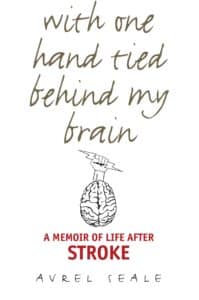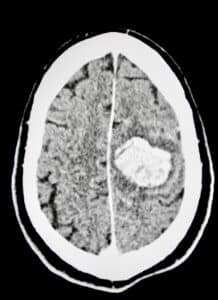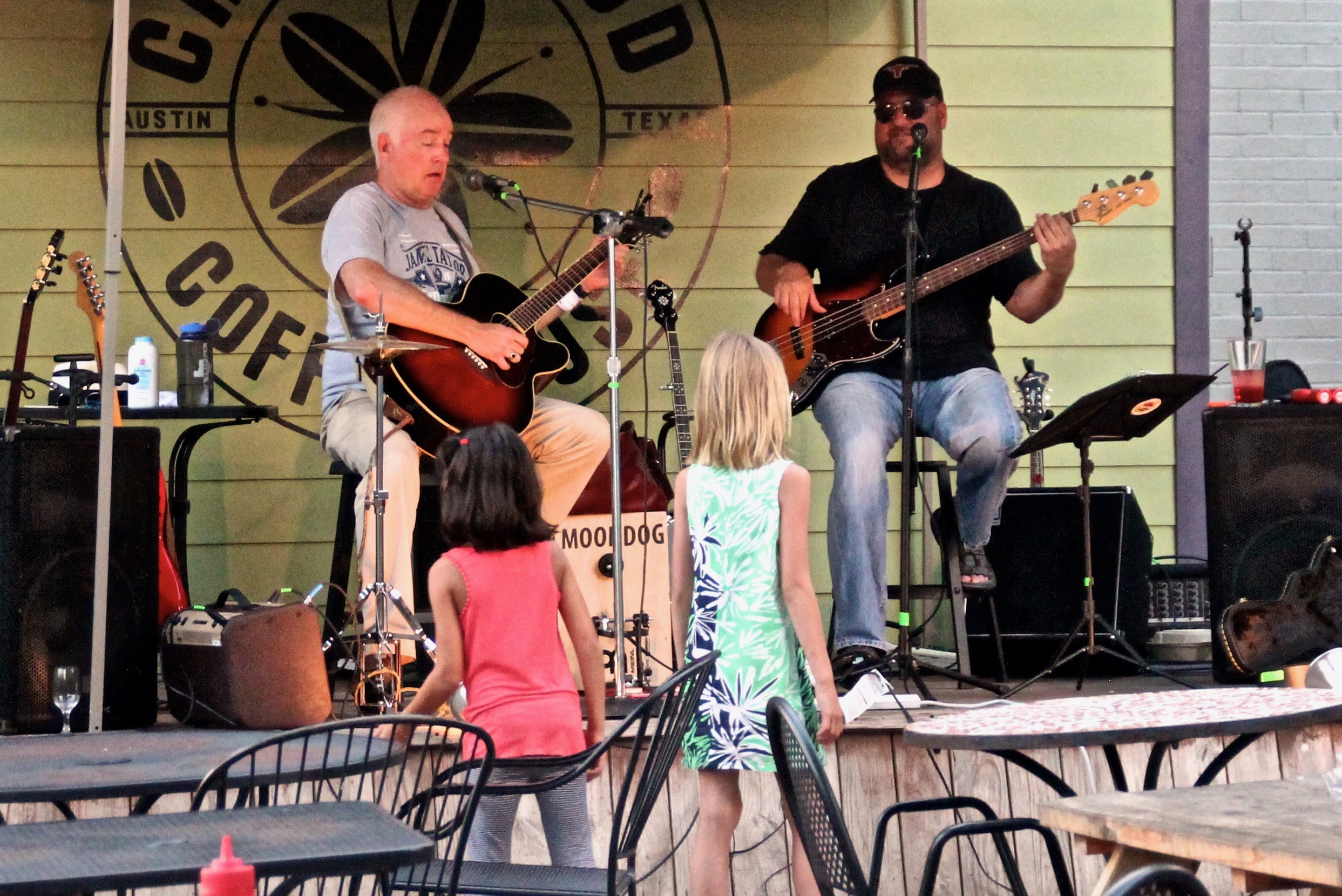
It was a Friday afternoon in January 2018, and Avrel Seale was on his way out of work. He’s had his backpack on and was headed for the elevator, but right when he passed by his office’s coffee maker, his hip “buckled up.”
Then in about two minutes, he couldn’t stand up anymore or move his right arm. Seale, who was 50 at the time, was having a stroke.
That would be the last day Seale would be able to move his right hand and right leg normally — a heartbreaking reality for a right-handed writer and guitarist.
There were days, Seale said, he would cry out “I just want to play.”
Like any writer would, he channeled his frustrations into his latest memoir, “With One Hand Tied Behind My Back,” which was released last month. He typed out the whole book with his left hand, and weaved in his love for playing guitar by naming each chapter after his favorite rock songs; he used Stevie Ray Vaughan titles for the first section.
Seale, who is now 53, was born in Harlingen and raised in McAllen. After graduating from McAllen Memorial High School in 1985, he studied radio, TV and film at the University of Texas in Austin, where he currently works as a writer and editor in the school’s communications department. Before working at UT, Seale worked at The Monitor for a few months as a reporter and columnist.
The same day Seale had the stroke and underwent an emergency brain surgery after doctors found a golf-ball sized brain bleed in his head, he knew he was going to write a memoir about it. It was one of the first thoughts he had right after surgery.
“I knew that unless this killed me, that it was going to be my next book, I had to write about this,” Seale said. “That’s kind of just the way I think, I think about books, and writing the book was how I was able to process what happened to me. It was the way I processed the grief.”

4: In January 2018, doctors found a golf-ball sized brain bleed in Avrel Seale’s brain. (Courtesy photo)
“With One Hand Tied Behind My Back” is Seale’s ninth book and fourth memoir. He is known for carrying a light-hearted and humorous tone in his work, and though he says it’s the most personal book he’s written, the memoir wouldn’t be an exception.
“I could have written the book in a medical way, or a self help way or a way that talked about my grieving, but I don’t want to read a book like that,” he said. “So I’m trying to empathize with the reader, what kind of book would I want to read if I was a stroke survivor or not.
“And it’s also my voice, and I didn’t want to change my voice just because I had a stroke.”
Seale’s book begins three weeks before the harrowing day of his stroke. He then takes readers through his journey moving from an intensive care unit, to a rehabilitation hospital, and then a recovery center for survivors of brain injuries.
He then discusses the emotions of returning home and going back to work, and the heartache of discovering how different his life was going to be with his partially paralized arm and leg.
Seale hasn’t lost complete movement of his right arm; he can grip a few things and hold onto bags and keys, but he can’t extend his fingers, or make the right hand position to strum a guitar.
“The emotions were just devastating, you just take your hands for granted all day every day,” he said. “There are 5,000 things that I did with my right hand every day that I suddenly couldn’t do anymore. So either I had to figure how to do it one handed — left handed — or do it some completely different way… I grieved, that’s the best word for it.”
After grieving, Seale decided to move forward and experiment with what he could do with one hand.
“I was lucky in that because right-handed guitar players use their left hand to hold down the strings, I was able to use all those chord shapes and guitar licks for most of them,” he said. Seale learned techniques called “hammering on” and “pulling off,” both of which require just his left hand to press the neck of the guitar. In just one motion, his fingers hammer down to make an acoustic sound, and plucks when he lifts them up.
He has practiced the techniques a few times with his band Moondog, which he has been a part of for several decades now. David McLeod, the bass player for the band, is Seale’s best friend and was by his side the harrowing night of the stroke.

In the memoir, Seale offers 13 pieces of advice for stroke survivors that, he said, will “help them preserve their energy and just be more prepared and be less frustrated with the daily grind.
One tip he offers is to “keep scissors on you at all times.”
“I didn’t realize how many packages I opened in the day until I had the stroke,” he said, laughing.
Seale said much of the book centers on how he dealt with the loss of his arm and leg.
“I tell myself that it’s OK to feel those things, that grief is normal and necessary — there is no short cut around it,” he said. “And then I try to reflect on some of the things I still have, the things I can still do.”
Seale’s wife, Kirstin Seale has been his stronghold, while his three sons have been his greatest motivation.
“I just count my blessings and I also think about how I can continue to make lemonade out of lemons,” he said. “Beyonce is not the only one who can make lemonade out of a bad situation… And that is what this book has been, it’s been a huge way for me to take a really terrible thing that happened to me, and turn it into an opportunity to advance my writing career.”





